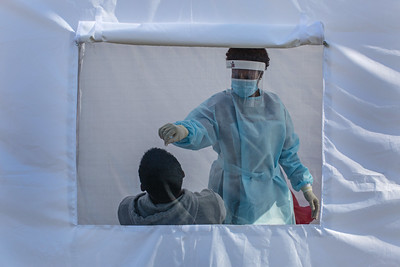
Shifting Geographies of Expertise and Policymaking
By Manjari Mahanjan
Manjari Mahanjan is an Associate Professor of International Affairs and Co-Director of the India China Institute.
Since the outbreak of the COVID pandemic in early 2020, governments around the world have unintentionally triggered crises as they have struggled to understand and control unprecedented and volatile situations. Take the early dramatic instance of the Indian government announcing in March 2020 a nation-wide lockdown with a scant five-hour notice. This had the unintended consequence of triggering a massive migrant and food crisis. Such and other policies raised the obvious questions: who were governments talking to in coming up with these decisions? Who were the experts—medical, epidemiological, economic, social—at the table when these pronouncements were crafted? What kinds of knowledge about health, society, and economy informed state policies?
These queries led my India China Institute (ICI) co-director Mark Frazier and me to organize a year-long virtual seminar called Shifting Geographies of Expertise and Policymaking. The seminar was convened virtually, with twelve scholars based in India, China, Singapore and the United States meeting on zoom on a fortnightly basis, followed by an in-person workshop, and continuing work on an edited volume. The seminar fellows were scholars from a wide range of disciplines in the social sciences, studying topics of public health, primary education, energy policy, urban history, and technology policy. We tackled some common questions centered around the relationship between epistemic and political authority in India and China: Who were the experts that informed government decision-making, and have they changed over time? What kinds of knowledge were privileged in policy decisions and what got sidelined? What were the roles for non-technical, lay and experiential knowledge?
The research and conversations of the dozen scholars spread across continents produced important insights on differences between the experiences in India and China, and between the two countries and western liberal democracies. In both countries, there is less of a resounding crescendo of a “crisis in expertise” that has been noted by many commentators in the United States and European countries where there has been much handwringing over an era of “post-truth,” “fake news” and “alternative facts” fueled by the echo chambers of social media and political polarization. Indeed, in most arenas, trust between publics and experts in China and India has been relatively higher. What was a growing trend was the steady centralization of policymaking authority in both countries, with shrinking spaces for divergent and dissident viewpoints, whether these came from academia, social movements, or NGOs. The centralization of policymaking often meant that expert opinions were selectively coopted. The conformity of expert opinions with political authority was aided by institutional structures in these countries wherein expertise that directly contributes to policymaking is typically deeply embedded within bureaucracies rather than in autonomous regulatory and advisory bodies.